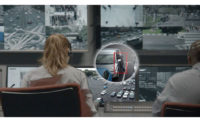Humans have been documenting and communicating for thousands of years — from the ancient Egyptian hieroglyphics to our current systems, immersed in a digital realm. Today, our methods of communication are so vast due to technology — Internet, e-news, social media, text messages, and more. Instant communication has become so widespread that we take for granted how important and powerful the written word is.
My grandparents met in the 1930s and shortly after they were married, my grandfather was off to war. My grandfather passed a few years ago and my grandmother treasures the handwritten letters they wrote to each other while my grandpa was overseas. When communication is written, it makes one’s ideas and feelings more concrete; it makes us think more, and forces us to document those ideas and feelings in that exact time the words were being written. The words of my grandparents’ time could be lost in history or destroyed, but through their written letters and today’s digital technology of preservation they are documented in time — forever.
The written word has the ability to empower or destroy you. In today’s world of viral communication, sometimes we forget the power of the written word and can easily take it for granted. Over the years, as our communication technology has become even more massive, I have personally seen where this power is ignored and the documented word destroyed people’s jobs, careers, and even personal lives. A friend of mine once decided to call in sick from work while playing hooky for the day at the local amusement park. This woman was having such a great time that she decided to post to her Facebook profile a picture of herself on a ride, all the while forgetting that her boss was her friend on social media. You can guess what happened next — she was soon looking for a new job.
Another caution when using current technology to communicate: be aware of who is receiving it and know that they are able to pass your written word along to others whom you may not intend for your communication to reach. I once saw the demise of a colleague, because he made an insensitive remark about a customer and didn’t realize he hit “Reply All” after making the comment. Needless to say, my colleague was a little shocked when he received a reply from the customer that he had insulted. Another job seeker.
The written word also can empower you. Once something is documented (blog, email, text, social media post), it is preserved and acts as a permanent record. While it can be used as a reference, vague and thoughtless messages can be misinterpreted or distorted, causing harm to both the author and the reader. Concise and careful communication make it easier to present complex matters and relay accuracy; provide the potential to prevent time and money wasted; delegate authority; maintain image; and is much easier to verify than imprecise and careless communication.
When a supervisor takes the time to write out words of appreciation and recognition, employees have an opportunity to reflect on it meaningfully. Certainly, face-to-face interactions are important and good for communication. However, if you want to take it a step further, consider writing down positive feedback to encourage reflection and drive meaningful behavior. That written evaluation will last longer than a simple “Good job!” in passing or a five-second mention during a staff meeting.
The phrase comes to mind that “The pen is mightier than the sword!” Written words are not as easily discarded because we choose and approve the words we write. The words are more respected, as well as less forgiven. Words do not accidentally get on the paper, in an email, or in social media posts. There is both intent and action needed to transmit thoughts to writing and to hit the send button — making the effects of what you write hold a higher level of impact.
Whoever said “Words are cheap” did not realize that words can actually be very expensive. They often cost you time and money. All words have a price tag; make sure you have something worth saying and only write or document words that anyone could read and you wouldn’t regret. Those documented words will more than likely be read later in history by someone.
For me, being able to read the letters exchanged between my grandparents illustrates their love for one another and the difficult times they experienced being apart during war. Their experiences and stories are documented and paint a picture for my family about the history of my grandparents, our family, and the relationship they built.
Before computers or paper were invented, civilizations across the world developed many solutions to the problem of communicating knowledge over distance and time, like the ancient Egyptians using pictures to tell a story. We are able to capture their knowledge thousands of years later because they figured out how to document and communicate their experiences. Without the documentation of written words we have spoken words, which can become distorted and misconstrued and historically becomes folklore.
Consider the words of Jodi Picoult in her novel Salem Falls: “Words are like eggs dropped from great heights; you can no more call them back than ignore the mess they leave when they fall.”




